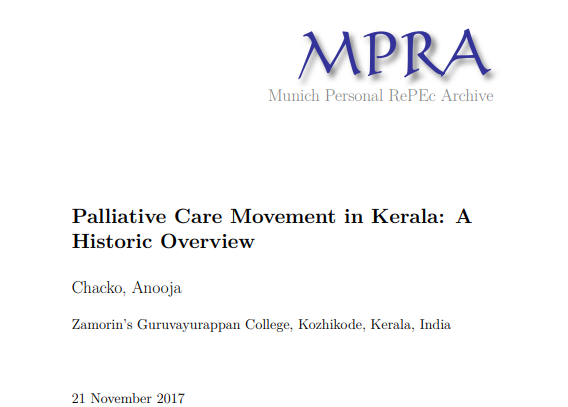Palliative care: a public health priority in developing countries
Palliative care is emerging as a critical discipline in the global health landscape, yet it remains largely underdeveloped in many developing countries. This article highlights the disparity in palliative care services between developed and developing nations, emphasizing the urgent need to prioritize it as a public health issue. With millions of deaths annually attributed to cancer, HIV/AIDS, and other chronic illnesses, most of these occurring in resource-poor countries, the demand for palliative care far exceeds the available services. Inadequate government commitment, limited opioid availability, and insufficient education are identified as the primary barriers impeding the development and delivery of effective palliative care in these regions.
The World Health Organization (WHO) defines palliative care as an approach that enhances the quality of life of patients and their families by addressing physical, psychological, and spiritual suffering. However, delivering effective palliative care requires adaptations tailored to a country’s cultural and economic contexts. With nearly half the global population living on less than $2 a day, the affordability of care becomes a major concern. This article underscores the importance of cost-effective solutions, such as the use of generic morphine for pain management, which has proven successful in countries like Uganda.
An analysis of global palliative care distribution reveals a stark imbalance. While services are concentrated in developed countries, less than 6% of palliative care initiatives are located in Asia and Africa, regions that account for the majority of the world’s population and deaths. Even where services exist in developing countries, their reach is limited, and palliative care is often excluded from national health agendas. This exclusion exacerbates the inequities in care, leaving millions to suffer from untreated pain and other distressing symptoms.
The article identifies three critical barriers to implementing palliative care: lack of government commitment, restricted access to opioids, and inadequate education. Government support is pivotal for integrating palliative care into national health systems. This includes revising opioid control policies to ensure adequate pain management and promoting education on the appropriate use of opioids. Advocacy is essential to raise awareness among policymakers about the benefits of palliative care and its role in improving the quality of life for terminally ill patients.
Education plays a transformative role in expanding palliative care services. Integrating palliative care training into undergraduate curricula for health professionals and providing ongoing education for practitioners are vital steps. Additionally, empowering family and volunteer caregivers with training on personal care and psycho-social support can significantly extend the reach of palliative care, especially in rural areas where professional medical care is often unavailable. Public education is equally important to create awareness about available options and to advocate for better care during terminal illnesses.
The article draws on the success of Hospice Africa Uganda as a model for addressing the challenges of providing palliative care in resource-poor settings. By overcoming barriers related to government commitment, opioid availability, and education, Uganda has demonstrated that it is possible to establish effective palliative care services even in economically disadvantaged contexts. However, rapid growth in palliative care provision requires consolidation to maintain quality and sustainability.
In conclusion, the article emphasizes that while prevention and treatment of diseases remain vital public health strategies, the suffering of those with terminal illnesses must not be overlooked. Palliative care is an ethical imperative and a practical solution to alleviate suffering and improve quality of life. By integrating palliative care into existing health systems and addressing key barriers, it is possible to bridge the gap between developed and developing countries, ensuring equitable access to compassionate care for all.




Comments
Post a Comment